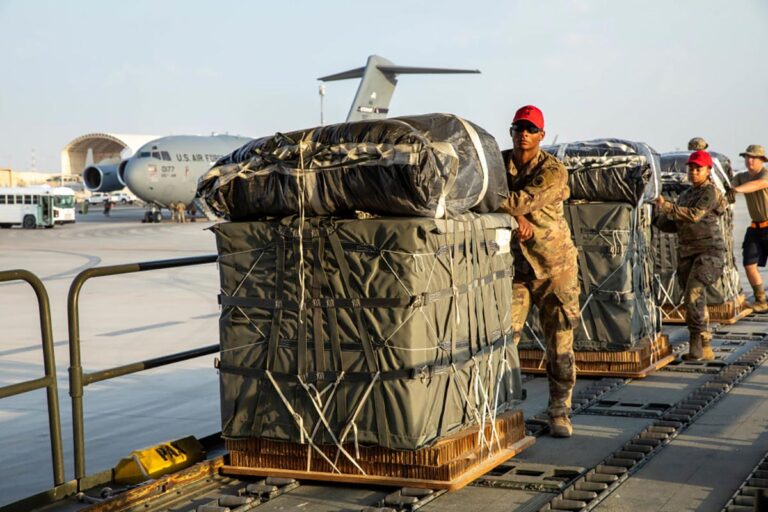
The war between Hamas and Israel has surpassed 155 days, with each week bringing new stories of both tragedy and hope.
Here are the main stories from this past week.
1. U.S. and E.U. advance new aid plans for Gaza
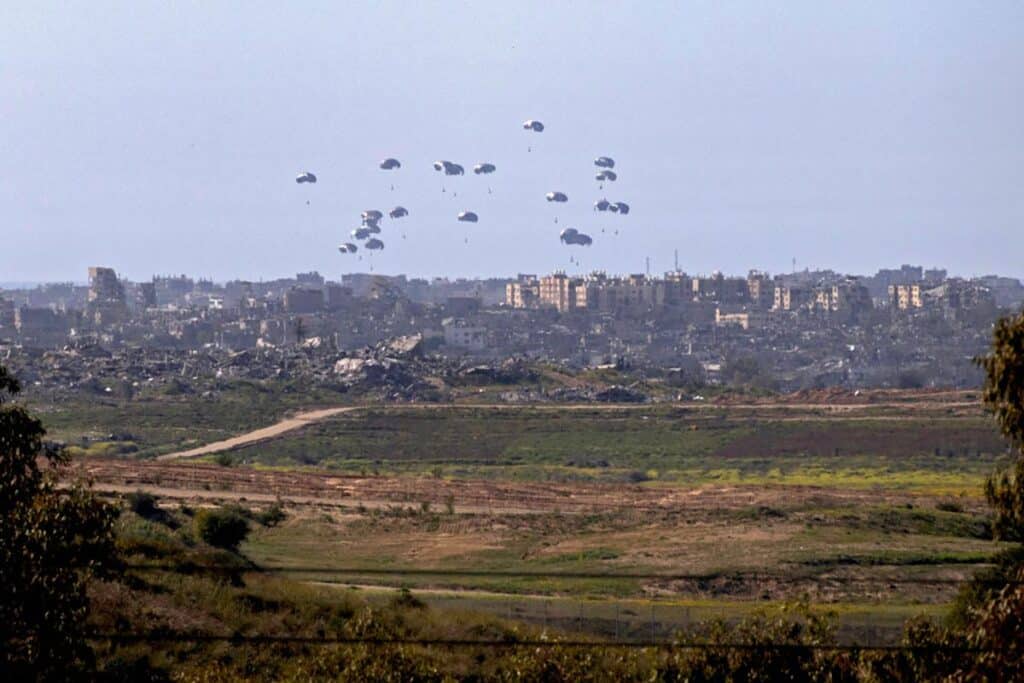
U.S. President Joe Biden announced on Thursday that the U.S. military will establish a temporary pier off the coast of Gaza to facilitate the delivery of humanitarian aid from Cyprus to Gaza via ships.
The announcement reflects growing frustration in the U.S. and other Western countries over what they say is Israel’s slow progress in getting aid into Gaza.
“Israel must allow more aid into Gaza and ensure that humanitarian workers aren’t caught in the crossfire,” Biden said during the State of the Union. “Humanitarian assistance cannot be a secondary consideration or a bargaining chip. Protecting and saving innocent lives has to be a priority.”
The E.U. is also moving forward with the maritime route for aid, with the president of the European Commission visiting Cyprus on Thursday to inspect the port from which aid ships will depart. British Foreign Secretary David Cameron announced on Friday that the U.K. is contributing to the plan.
While some reports portrayed the move by the E.U. and the U.S. to open the maritime route as “going over Israel’s head,” Israel and Cyprus actually already agreed on establishing the maritime aid route in December.
In addition to the maritime route, Israel and its regional and international partners are exploring other options for delivering aid to Gaza, including the opening of a new border crossing in northern Gaza.
Digging deeper: The new initiatives follow a tragic incident in late February where over 100 people were killed and many more injured as crowds attempted to access aid trucks in northern Gaza.
While Hamas accused Israel of shooting at the crowds, the IDF stated that it did not fire at the convoy and that the deaths were caused by people trampling each other in the rush.
Regardless of the cause of the deaths, the incident served as a wake-up call to the desperate humanitarian situation in Gaza, prompting intensified efforts by world leaders and the IDF to deliver aid to Gaza.
2. Netanyahu deemed responsible for Meron disaster, critics draw parallels to Oct. 7 failures
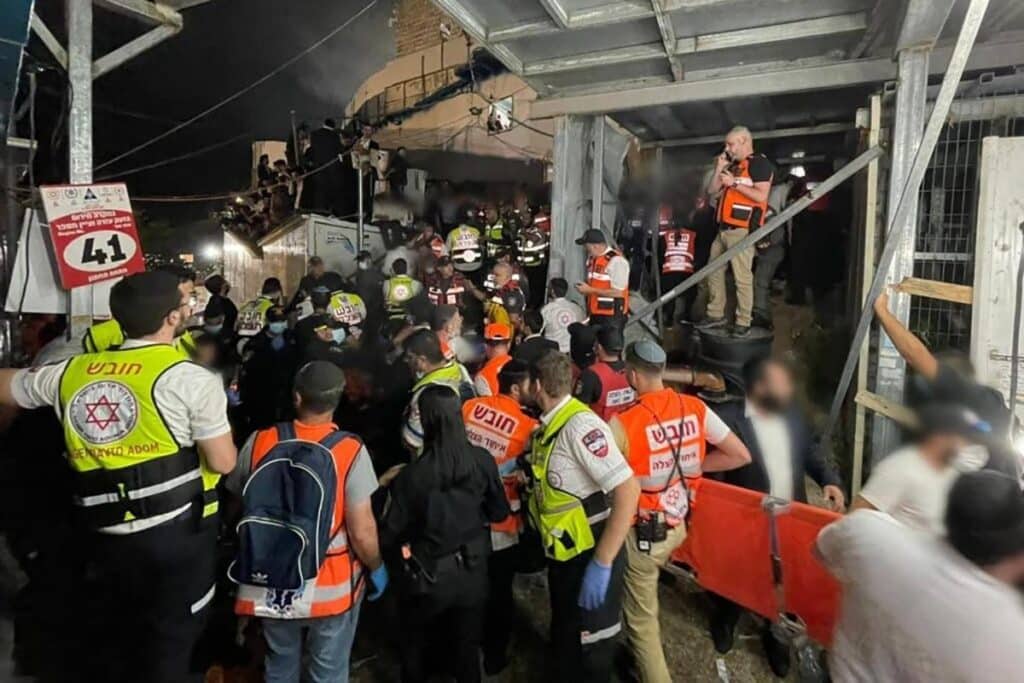
A state commission of inquiry found that Prime Minister Benjamin Netanyahu bears personal responsibility for the 2021 Meron disaster, in which 45 people were killed in a crush during Lag Ba’Omer festivities.
The commission noted that the grave of Rabbi Shimon Bar Yochai, where the disaster occurred, had been recognized as hazardous for years, with numerous warnings issued since 2008. Notably, Netanyahu served as prime minister for 12 of the 13 years between 2008 and 2021.
In its report, the commission said that almost every one of the officials who were questioned tried to evade responsibility by downplaying their roles, shifting blame, or claiming they were “responsible but not guilty.”
Netanyahu’s Likud party spokesperson condemned the findings, labeling them a “cynical and deliberate” politicization of the Meron disaster by opposition leader Yair Lapid. The commission was established under the government of Naftali Bennett and Lapid, which took office shortly after the Meron disaster, and its members were appointed by then-Supreme Court president Esther Hayut.
Interestingly, other Likud members have distanced themselves from the spokesperson’s remarks after it faced backlash from both the opposition and Likud’s coalition partners.
Why it matters: Critics of Netanyahu have drawn connections between the Meron disaster and the failures surrounding the Oct. 7 massacre, noting that both incidents occurred under Netanyahu’s tenure and after repeated warnings were disregarded.
Similarly, they argue that the Likud party’s dismissal of the commission’s findings mirrors Netanyahu’s refusal to accept responsibility for the failures surrounding the Oct. 7 massacre.
The commission’s findings and the Likud’s response intensify the already stormy debate within Israel over Netanyahu’s leadership.
3. Israel won’t significantly restrict Temple Mount access during Ramadan
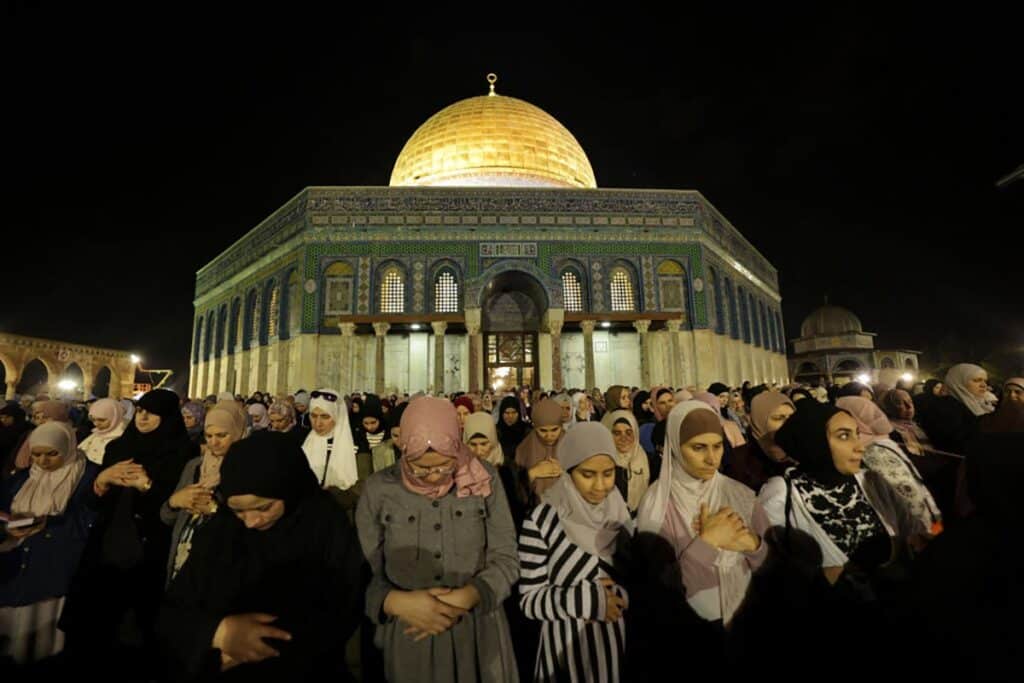
Netanyahu announced on Tuesday that Israel would not be impose additional restrictions on access to the Temple Mount and al-Aqsa Mosque during the Muslim holy month of Ramadan.
Prime Minister Benjamin Netanyahu held a discussion today on preparations for Ramadan:
— Prime Minister of Israel (@IsraeliPM) March 5, 2024
"Israel's policy has always been, and always will be, to safeguard freedom of worship for all faiths. This is what we have also done during Ramadan and this is what we will do now.
The decision came after initial reports that Netanyahu and National Security Minister Itamar Ben-Gvir had considered extra restrictions for Israeli Arabs visiting al-Aqsa Mosque, which sparked outrage both in Israel and abroad. Both the Shin Bet and IDF advised against such measures.
The Prime Minister’s Office stated that during the first week of Ramadan, worshippers’ entry to the Temple Mount would be similar to previous years, with security and safety assessments conducted weekly to determine any necessary adjustments.
“Israel’s policy has always been, and always will be, to safeguard freedom of worship for all faiths. This is what we have also done during Ramadan, and this is what we will do now,” Netanyahu affirmed.
“We will do everything to safeguard freedom of worship on the Temple Mount while appropriately taking into account security and safety needs, and will enable the Muslim public to mark the holiday.”
Ben-Gvir expressed disappointment with the decision, posting on X, “Hamas celebrations on the Temple Mount ≠ absolute victory.”
Digging deeper: Ramadan is always a flashpoint for tensions in the region, particularly on the Temple Mount. Within Israel, it highlights a debate about balancing security concerns with the right to religious freedom.
Typically, restrictions based on age are placed on West Bank Palestinians’ access to Jerusalem and the Temple Mount, but sweeping restrictions against Israeli citizens are rare.
Proponents of restrictions argue that they could prevent violence during Ramadan since young men are often the ones who spark the violence. Critics contend that restrictions would raise tensions and spark violence elsewhere and that Israel is obligated to ensure freedom of worship.
4. Israel recalls U.N. ambassador after Guterres allegedly ignores report on Hamas sexual violence
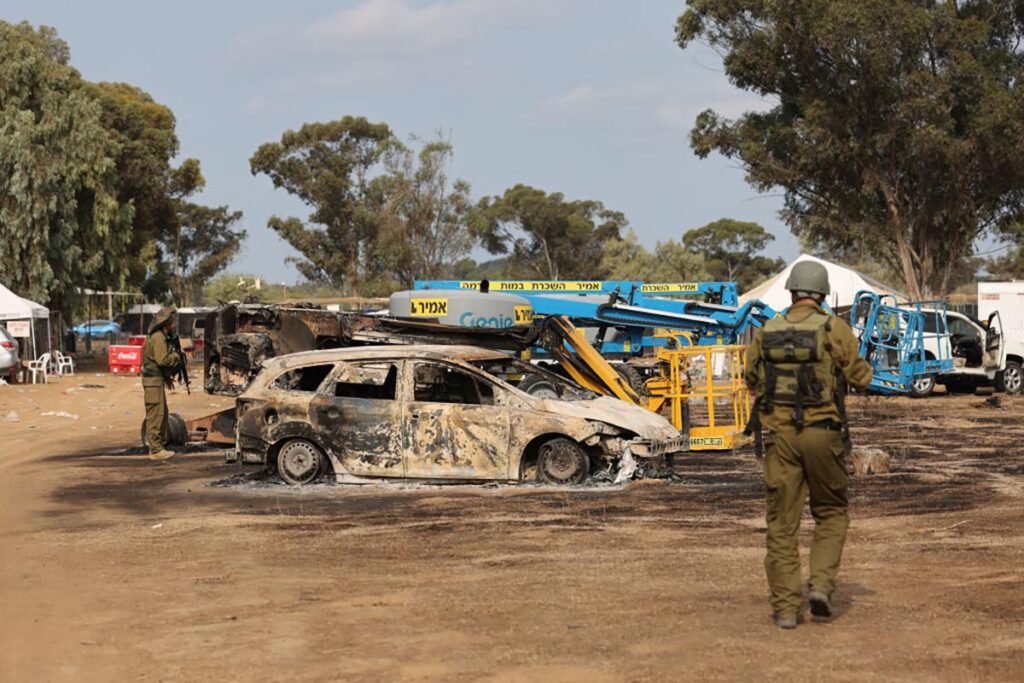
A U.N. report published on Monday found that there was substantial evidence of sexual assault and rape committed by Hamas terrorists against Israelis during the Oct. 7 massacre.
The report, issued by U.N. Special Representative on Sexual Violence in Conflict Pramila Patten, also found “clear and convincing information” that Israeli hostages held in Gaza were subjected to sexual violence.
The U.N. team that compiled the report noted a pattern of victims, mostly women, found fully or partially naked, bound, and shot in several locations across southern Israel, saying that this “may be indicative of some forms of sexual violence.”
Following the report’s publication, Foreign Minister Israel Katz instructed Israel’s envoy to the U.N., Gilad Erdan, to return to Israel for “immediate consultations regarding the attempt to silence the serious U.N. report.”
Katz argued that U.N. Secretary-General António Guterres should have convened an emergency meeting of the U.N. Security Council immediately after the report was published.
The latest @UN report starkly details Hamas's atrocities on October 7th, including mass murders, rapes, and systematic sexual offenses. Yet, silence from the Chairman. It's time for action, @antonioguterres. Hamas must be globally recognized as a terrorist entity, its supporting…
— ישראל כ”ץ Israel Katz (@Israel_katz) March 4, 2024
He accused Guterres of “trying to downplay the serious report he himself commissioned on Hamas’ sexual crimes” and of “trying to exclude Hamas from responsibility.”
On Friday, the U.S., U.K., and France called for an urgent U.N. Security Council session to discuss the U.N. report. Katz welcomed the call, posting on X, “On International Women’s Day, the @UN and the secretary general @antonioguterres must act, not be silent. Time to declare Hamas a terror group and call for the release of all hostages.”
The US, UK, and France back my call for a UN Security Council session on Hamas's sexual violence.
— ישראל כ”ץ Israel Katz (@Israel_katz) March 8, 2024
On International Women's Day, the @UN and the secretary general @antonioguterres must act, not be silent. Time to declare Hamas a terror group and call for the release of all…
Digging deeper: The U.N. and women’s rights groups around the world took months to condemn the Oct. 7 massacre, despite photographic and video evidence, eyewitness accounts, and several investigations finding evidence that crimes of sexual violence were committed by Hamas terrorists.
Some activists and journalists have even expressed outrage at the new U.N. report, claiming that it will be “weaponized” by Israel to justify the war against Hamas.
In Israel, Orit Sulitzeanu, CEO of the Association of Rape Crisis Centers, stressed after the report was published: “Now, we hope that the rest of the world will follow the U.N.’s lead, recognize the heinous sex crimes committed by Hamas terrorists, and apply pressure for the release of the male and female hostages who have been held captive by Hamas for 150 days.”
5. Gantz holds tense meetings with U.S., U.K. officials
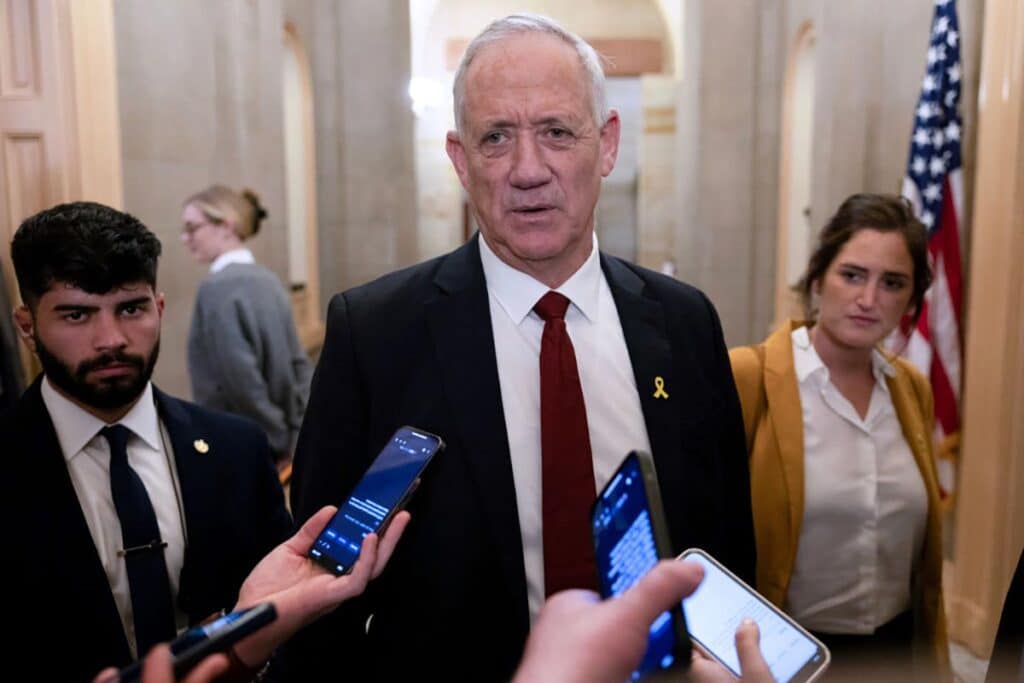
War Cabinet Minister Benny Gantz visited the U.S. and the U.K. this week for meetings with world leaders, including U.S. Vice President Kamala Harris and British Prime Minister Rishi Sunak.
In these discussions, Gantz faced tough questioning on the escalating humanitarian crisis in Gaza. U.S. Secretary of State Antony Blinken conveyed to Gantz in a “quite direct and frank” manner the need for an increase in aid to Gaza, as per White House Spokesperson Matthew Miller.
Vice President Harris also expressed her “deep concern” regarding the situation.
U.K. Foreign Secretary David Cameron also pressed Gantz on the humanitarian situation, stating, “we are still not seeing improvements on the ground.”
Digging deeper: Back in Israel, Gantz’s visit to the U.S. and U.K. triggered backlash from coalition members who accused him of trying to undermine Netanyahu’s leadership. Notably, Gantz did not receive approval for his trip from either Netanyahu or the cabinet.
The fact that world leaders have met with Gantz, while Netanyahu has not received similar invitations in recent months, has sparked speculation by political analysts that the U.S. and other nations might view Gantz as a preferable successor to Netanyahu.
Originally Published Mar 10, 2024 08:07PM EDT
